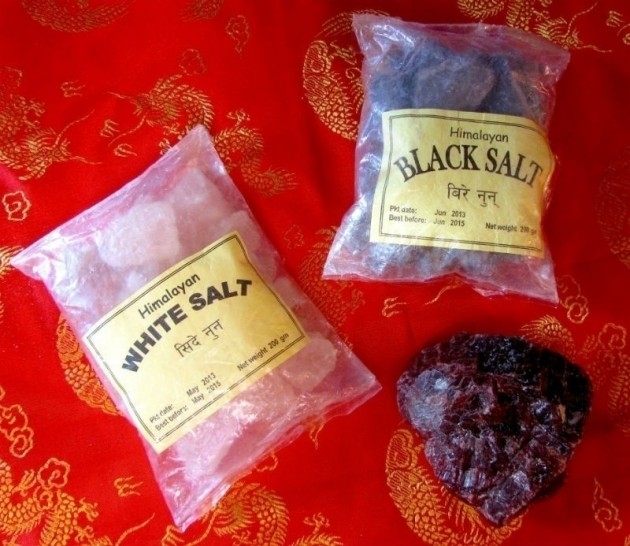- Rheumatoid arthritis (RA)
- Type 1 diabetes
- Crohn's Disease
- Hashimoto's thyroiditis
- Neurological diseases
- Multiple Sclerosis (MS)
- Glomerulanephritis
- Pernicious Anaemia
- Goodpasture's syndrome
- Scleroderma
- Raynaud's Phenomenon
- Lupus (e.g., systemic lupus erythematosus [SLE])
- Inflammatory bowel disease (IBD)
- Ulcerative Colitis
- Grave's disease
- Myasthenia Gravis
- Vitiligo
- Sjogren's Syndrome
- Addison's Disease
- Autoimmune Haemolytic Anaemia
- Idiopathic Thrombocytopenic Purpura
The term Autoimmune Diseases refers to a varied group of more than 80 distinct, chronic illnesses in which the underlying problem is similar - the body's immune system is misdirected, attacking the body tissues it was designed to protect. Autoimmune disease can affect any system, organ, or tissue in the body, including the gastrointestinal (GI), nervous, and endocrine sysems as well as the eyes, blood, blood vessels, and skin and other connective tissues.
The purpose of this guide is to offer a functional medicine approach to addressing the various issues associated with autoimmune disease. The strategies discussed in this guide are not intended to treat disease, but to identify possible triggers and address underlying and mediating factors, such as:
|
|
Autoimmune Triggers -
Minimize the impact of physiological and environmental trigger.
Sex Hormones
The sex hormones - particularly estrogen - appear to play a role as mediators and perpetuators of inflammatory and autoimmune disorders. This may explain the higher incidence of autoimmune diseases among women and fluctuations of diseases everity observed in pregnant women. In fact, it's been shown that synovial fluid levels of pro- inflammatory estrogens relative to androgens are significantly elevated in both female and male RA patients.
Sex Hormone Activity
Research suggests that sex hormones influence the immune response in a number of ways. Estrogen appears
to enhance Th1 activity, whereas androgens and progesterone possess immunosuppressive properties. The local effects of sex hormones appear to consist primarily of the modulation of cell proliferation and cytokine production.
Estrogen Metabolism
An interesting aspect of the observations concerning estrogens and autoimmunity relates to estrone metabolism and to the 16α-hydroxylated metabolite-a mitogenic estrogen that appears to increase estrogen-induced autoimmunity-in relation to levels of the 2-hydroxylated metabolite, which is not mitogenic or immunogenic. A number of studies on patients with RA and SLE have demonstrated elevated levels of the mitogenic 16α- hydroxyestrone ( 16α-OHE), likely contributing to the cellular proliferative state observed in these autoimmune diseases.
Considerations
- Promote estrogen detoxification to prevent estrogen dominance in relation to androgen and progesterone
- Support the hydroxylation and methylation of estrogens to help favor the conversion of 2-OH over 16α- OH estrogens
- Assess with section XII of Health Appraisal Questionnaire (HAQ)
Nutritional Support
- Indole-3-carbinol (I3C) to promote 2-OH estrogen conversion - Meta I3C
- Non-soy isoflavones with bioactive folate for healthy estrogen balance -EstroFactors
- Medical food for healthy hormone balance - Estrium
- Metabolic detoxification program
- Anti-inflammatory diet program
Drugs & Chemicals
It is now apparent that a number of drugs and environmental pollutants can induce immunotoxic effects, resulting in the appearance of auto antibodies and in some instances, in the appearance of autoimmune clinical syndromes. One of the most studied diseases in relation to environmental factors is lupus; although, there is increasing research on conditions such as scleroderma, RA, vasculitis, as well as muscle, blood, and neurologic disorders.
Drugs
Over 70 drugs have been reported to be related to autoimmune conditions, and have been particularly implicated in the development of drug-related lupus (DRL), a condition sometimes accompanied by central nervous system and renal involvement. Specific families of drugs that have been identified as autoimmune-inducing agents include anticonvulsants, beta-blockers, and sulfonamides. Interestingly, common drugs associated with DRL are estrogens, gold salts (also used to treat RA), penicillin, and interferon.
Environmental Pollutants
Many environmental pollutants - such as xenobiotics, mercury, cadmium, gold, organic solvents, vinyl chloride, pristane (a compound of mineral oil), and pesticides - may cause adverse reactions in susceptible individuals that are characteristic of autoimmune disease. Although the mechanisms by which environmental pollutants contribute to autoimmune disorders are still under investigation, it is thought they may trigger macrophages and other inflammatory cells to release pro-inflammatory products. In addition, they may shift the balance between type 1 and type 2 immune responses.
Considerations
- Identify and avoid environmental triggers
- Assess detoxification capacity
- Modulate Th1/Th2 balance
- Assess with section II of HAQ
- Assess general physical symptoms with Medical Symptoms Questionnaire (MSQ)
- Elimination or anti-inflammatory diet program
Nutritional Support
- Medical food for metabolic detoxification - UltraClear PLUS
- Elimination or anti-inflammatory diet program
- Bioactive folates for detoxification - ActiFolate
- Comprehensive antioxidant support - Oxygenics
- Reduced iso-alpha acids (RIAA) and vitamin D nutraceutical - Kaprex AI
Autoimmune Mediators -
Address the underlying physiological and dietary contributor.
Gi Barrier Function & Microflora Balance
Research suggests there is a correlation between mucosal barrier function and autoimmune disease. The GI tract is responsible for regulating the traffic of molecules between the environment and the body through a barrier mechanism. Together, the GI barrier with its selectively permeable intracellular tight junctions, lymphoid tissue, and neuroendocrine network control the balance between tolerance and immunity to potential antigens. When the precise trafficking of molecules becomes dysregulated, autoimmune disease can occur.
Intestinal Permeability
The permeability of the intestinal barrier depends on the regulation of intercellular tight junctions, which are responsible for selectively trafficking beneficial and potentially harmful molecules-such as nutrients and antigens, respectively - between the environment and host. It is now widely accepted that tight junction dysfunction, commonly referred to as " leaky gut," plays a role in the pathogenesis of several diseases, particularly autoimmune diseases.
Emerging scientific findings from mucosal biopsies of IBD patients have shown altered expression of critical tight junction proteins, possibly due to the effects of pro-inflammatory cytokines on barrier integrity. This suggests a vicious cycle is created , in which increased intestinal permeability allows further leakage of intestinal contents, contributing to a pro-inflammatory immune response on intestinal tissue that in turn promotes further gut leakiness.
Microflora Balance
A healthy intestinal tract harbors a large variety of beneficial microflora, or "friendly" bacteria, residing in close proximity to rapidly renewing intestinal epithethial cells and other components of the mucosal immune system. Components of beneficial microflora are essential to maintain a balanced immune and inflammatory response; when this balance is disrupted, excessive immune activation could pose a risk to the development of intestinal or systemic inflammation.
Considerations
- Manage GI function through GI Restoration Program (see 4-R Program)
- Reduce inflammatory response
- Assess with section 1 of HAQ
Nutritional Support
- Medical food for inflammation - UltraInflamX
- Elimination or anti-inflammatory diet program
- Lactobacillus acidophilus NCFM and Bifidobacterium supplement - Ultra Flora I.B.
- Herbal animicrobial with berberine and oregano - Candibactin BR andCandibactin AR
- Omega-3 (high EPA) supplement - EPA-DHA 6:1
TH1 Dominanace
Emerging data suggests the same immune mechanisms that protect against invasive microorganisms are involved in the generation of organ-specific autoimmune disease, as well as result in the destruction of tissue and loss of organ function during the course of autoimmune disease. This immune response, known as cellular immunity, is controlled by Th1 cells, which develop preferentially over Th2 cells during infections with intracellular pathogens.
Cellular Immunity Action
Upon activation, Th1 cells control the type of immune response by secreting pro-inflammatory cytokines, activating macrophages to produce reactive oxygen intermediates and nitric oxide, and stimulating their phagocytic functions. When the Th1 pathway is over-stimulated, the Th1-driven immune response can be become aggressive and autoreactive in susceptible individuals, as has been seen in organ-specific autoimmune diseases such as RA and type 1 diabetes.
Role in Autoimmune Inflammation
A number of scientific observations suggest that Th1-driven immunity plays a dominant role in the pathogenesis of autoimmune inflammation. Emerging research indicates that Th1 cells are stimulated by pro-inflammatory cytokines, whereas Th2 cells are stimulated by antiinflammatory cytokines,suggesting a strong association of Th1 dominance in autoimmune inflammation.Interestingly, activated Th1 cells have been found in the inflamed synovium of RA patients.
Considerations
- Reduce Th1 dominance and balance overall immune activity
- Assess with section VII of HAQ
- Anti-inflammatory diet program
Nutritional Support
- Medical food for inflammation and biotransformation - UltraInflamX
- Elimination or anti-inflammatory diet program
- Omega-3 (high EPA) supplement - EPA-DHA 6:1
- RIAA and Vitamin D nutraceutical - Kaprex AI
- Lactobacillus acidophilus NCFM and Bifidobacterium supplement - Ultra Flora I.B.
- Non-soy isoflavones with bioactive folate for healthy estrogen balance -EstroFactors
Inflammation
Research indicates that inflammation is intrinsic to autoimmune diseases. During inflammation, the inflammatory cascades release a wide array of cytokines, eicosanoids, reactive oxygen species (ROS), and other mediators that can overwhelm and offset Th1/Th2 balance and potentially damage body tissues.
Cytokine Dysregulation
Recent evidence indicates the involvement of cytokines - mediators that control immune and inflammatory responses - in the pathogenesis of autoimmune disease. Specifically, cytokines associated with the Th1 immune response - such as IL-12,TNF-α, and IFN-α - stimulate other inflammatory responses, indicating they play a synergistic role to drive chronic inflammatory responses in autoimmune disease.
Eicosanoid Pathways
Major mediators of collateral damage in autoimmunity are eicosanoids - lipid mediators that are central to the inflammatory pathway and the regulation of numerous physiological processes. Inhibition of the cyclooxygenase- dependend eicosanoid products is known to improve the quality and prolong the life of patients with autoimmune disease, such as lupus and autoimmune arthritis.
C-Reactive Protein
High sensitivity C-reactive protein (hsCRP) is a non-specific marker of inflammation that maybe markedly elevated in chronic inflammatory conditions, and has been reported to be predictive of future coronary heart disease (CHD) events in several studies.
Because the inflammation in autoimmune diseases has been found to result from the underlying issue of immune activation, "disease modifying anti-arthritic drugs" (DMARDs) have been used to suppress the immune system, thereby eventually leading to a decrease in inflammation. A number of natural ingredients may provide similar immune-balancing and/anti-inflammatory effects.
Considerations
- Calm systemic inflammatory status
- Support antioxidant pathways
- Address fatty acid profile
- Assess status of hsCRP and other inflammatory markers
- Assess general physical symptoms with MSQ
Nutritional Support
- Medical food for inflammation - UltraInflamX
- Anti-inflammatory diet program
- RIAA and Vitamin D nutraceutical - Kaprex AI
- Omega-3 (high EPA) supplement - EPA-DHA 6:1
Impaired Biotransformation
The depletion or insufficiency of any cofactor involved in biotransformation can significantly impair overall health and well-being. Biotransformation describes the series of chemical alterations that a compound undergoes in order for the body to adequately excrete the compound. These chemical alterations most often involve the cytochrome P450 family of enzymes, which includes the detoxification enzymes that act to metabolize drugs and foreign chemicals. Cytochrome P450-containing enzymes are also involved in the detoxification of estrogen, metabolism of a rachidonic acid and eicosanoids, and conversion of vitamin D into its active metabolite.
Vitamin D Metabolism
One of the important roles of the CYP450 family related to immune f unction regulation is the metabolism of vitamin D3. Vitamin D is first hydroxylated in a rate limiting step to 25-hydroxyvitamin D3 in the liver by CYP25 ( 25-hydroxylase) and then further hydroxylated in the kidney to 1,25 dihydroxyvitamin D3, which is the active hormonal form of the vitamin. Expression of the vitamin D hydroxylating enzymes in the liver and kidney determine, in part, the role that the hormonal form of vitamin D has in modulating immune function .
B Vitamins and Estrogen Detoxification
B vitamins - such as folate, B6, and B12 - function as important co-factors for enzymes involved in estrogen detoxification. T herefore, decreased levels of B vitamins can disrupt estrogen detoxification, leading to increased levels of circulating estrogen and an unhealthy balance of estrogen metabolites, such as 2-OHE and 16α-OHE. Because up to 40% of the U.S. population has a genetic variation that impairs the ability to metabolize folic acid, supplementation with the active metabolite of folate, L-5-methyl tetrahydrofolate (L-5-MTHF), can be especially beneficial.
Considerations
- Initiate patient-specific metabolic detoxification program
- Support antioxidant pathways
- Assess vitamin D status
- Assess with section II of HAQ
- Assess general physical symptoms with MSQ
Nutritional Support
- Elimination or anti-inflammatory diet program
- Medical food for metabolic detoxification - UltraClear PLUS
- Milk thistle extract - Silymarin 80
- Bifunctional detoxification support formula - AdvaClear
- Vitamin D3 supplement with soy isoflavones - Iso D3
Nutritional Deficiencies
A variety of common nutritional deficiencies can exacerbate the autoimmune response, such as the following:
Vitamin D
Mounting scientific data indicates vitamin D deficiency increases the risk of autoimmune diseases such as type 1 diabetes, MS, and RA.The metabolized, hormonal form of vitamin D (1,25[OH2] D) acts as an important immune modulator through its interactions with immune cells and involvement in regulating lymphocyte function, cytokine production, and macrophage activity.
Unfortunately, vitamin D deficiency has reached epidemic proportions in the United States. With this new emphasis on the importance of vitamin D, many researchers are now recommending levels of intake much higher than 400 IU per day, which is the recommended amount.
Folate
Moderate hyperhomocysteinemia related to low folate levels has been reported in patients with autoimmune diseases. Interestingly, a recent study of patients with RA showed a correlation between high homocysteine levels, low folate status, and increased concentrations of immune activation markers - suggesting that both folate status and immune activation could be involved in the development of hyperhomocysteinemia.
Omega-3 Fatty Acids
Omega-3 fatty acids, particularly EPA, possess potent anti-inflammatory and immunomodulatory effects. The properties of omega-3s include regulation of the amount and types of eicosanoids produced, as well as actions on transcription factor activity and gene expression. A number of clinical trials in inflammatory and autoimmune diseases - including RA, Crohn's disease, ulcerative colitis, psoriasis, SLE, and MS - have revealed significant benefits of omega-3 supplementation.
Selenium and Zinc
The role of these minerals in chronic inflammatory conditions is of great scientific interest because they are co- factors in metabolic processes involving joint tissues and immune system function. Selenium and zinc deficiencies have been linked to an exacerbation of inflammation in active RA, and supplementation has been reported to reduce joint tenderness and stiffness.
Considerations
Assess diet and supplement regimen with diet diary (found in the FirstLine Therapy® book)
Oxidative Stress
Emerging research suggests that chronic oxidative stress may play a substantial role in the pathogenesis of autoimmune disease and related complications. Oxidative stress favors a sequence of immune system activities, such as production of pro-inflammatory cytokines, macrophage activation, cellular proliferation, and endothelial activation - the same events found in autoimmune diseases, particularly SLE. This has led some researchers to hypothesize that oxidative stress may trigger inflammatory activity, inducing a flare of autoimmune disease in susceptible individuals.
Oxidative Stress Considerations
- Reduce oxidative stress and inflammation
- Assess antioxidant nutrient intake
Oxidative Stress Nutritional Support
- Comprehensive antioxidant blend of vitamins A, C, E with selenium and zinc - Oxygenics
- Green tea, D-limonene, and tumeric formula - Celapro
- Medical food for inflammation and biotransformation - UltraInflamX
- Anti-inflammatory diet program
Suggested Nutritional Supplementation
Core Nutritional Support Protocol
- UltraInflamX® Plus 360 - 2 scoops twice daily
Multi-mechanistic support with key nutrients, phytonutrients, and selective kinase response modulators (SKRMs) to address underlying inflammation.
- Follow either the Modified Elimination Diet or the Anti-Inflammatory Diet
- LactoFlamXTM - 1 capsule daily
LactoFlamX features L. plantarum 299V - a strain-identified probiotic that has been specifically shown to support the integrity and healthy function of the muscosal lining.
- EPA-DHA 6:1TM Enteric Coated - 2 softgels three times daily.
EPA-DHA 6:1 Enteric Coated omega 3 fatty acids providing a ratio appropriate for patients with chronic inflammatory conditions.
|
Vitamin D3 with Isoflavones. Iso D3 is designed to support optimal metabolism of vitamin D to its
active form.
If there is a soy sensitivity use:
|
High potency vitamin D3 - the most bioactive form of supplemental vitamin D.
Additional Nutritional Support Considerations
Body composition management
- High BMI - Introduce lower calorie Modified Elimination or Anti-inflammatory Diet
- Low BMI - Introduce higher calorie Modified Elimination or Anti-inflammatory Diet and measure hsCRP
- If hsCRP is greater than 1.5mg/l then increase Kaprex® AI to 2 tablets, three times daily
Insulin resistance and dysglycemia
- MetaGlycemXTM - 2 tablets three times daily
ut
Sex hormone dysregulation
- EstroFactors® - 3 tablets daily.
- Meta I3C® - 2 capsules daily.
- ActiFolate® - 1 tablet, three times daily.
Hepatic detoxification imbalances/Drug or Chemical toxicity
- AdvaClear® - 2 capsules twice daily.
Gastrointestinal Restoration (4R Program)
- EndefenTM - 1 tsp, three times daily.
- UltraFlora I.B.TM - 1-2 capsules daily.
- Glutagenics® - 2 tsp, three times daily.
TH1 dominance or chronic allergy
- EstroFactors® or Testralin® - 3 tablets daily.
Impaired biotransformation or hepatic detoxification imbalances
- AdvaClear® - 2 capsules twice daily.
- Silymarin 80 - 3 tablets daily.
Oxidative stress
- Oxygenics® - 2-6 tablets daily.
- Celapro® - 2 softgels daily.
- MetaLipoate® 300 - 1 tablet twice daily.
Vitamin A insufficiency
- Ultra Pure Cod Liver OilTM - 1 tsp, three times daily
Thyroid Support
- Thyrosol® - 1-3 tablets twice daily






